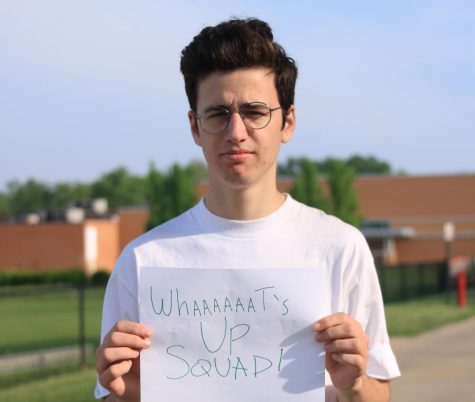Religious recognition
She makes her way across the long parking lot into temple with her dad by her side. Surrounded by familiar faces, she is at ease. For the next hour or so, being present at service with her Jewish Community is all that matters.
For Julia Smotkin, sophomore, attending temple or participating in Sunday school can be the highlight of her week. Julia said with a stressful schedule full of honors and AP classes, trying to balance both school, social activity and a devout religious life can often frustrate her.
“I am constantly faced with the problem of [coming] to school, not being focused and not having a productive day just to purely be at school,” Julia said. “For example, Yom Kippur is a fasting holiday, and I’ve come to school hungry and not focused and just had a horrible day. Students who don’t understand the holiday tease me with food or eat it in front of me which is frustrating.”
One particular problem for Smotkin is whether to chose school or attend temple for a Jewish high holiday. This year Yom Kippur, one of the religion’s most important holidays, falls on a KHS football game. And in years prior, Hanukkah, an eight-day Jewish holiday celebrating the rededication of the Holy Temple, took place during finals.
“Sometimes Hanukkah is during finals,” Julia said. “It is really difficult because after school I just go home and study non-stop, and I don’t really get to celebrate with my family.”
Julia’s father, Howard Smotkin, said not much has changed since his schooldays in regards to missing school for Jewish holidays. He said that KSD should be more considerate to students religious needs.
“I think that accommodating her and others religions is important,” Smotkin said. “At KHS they like to embrace diversity and this is one of the byproducts of embracing diversity; that you have people of different beliefs.”
At KHS, 35 percent (34/96) of students believe that one religion is prioritized over others. She said change begins with her peers and hopes everyone can comprehend the needs of other students beliefs.
“People are not as understanding about the needs of someone who is Jewish or Muslim,” Julia said. “I do sometimes face the problem of am I going to do homework or celebrate at temple with my congregation.”
However, Julia’s father said he does not think more days off is the answer, just leniency toward those practicing in religious holidays. While the new attendance policy does grant “religious observations” as an excusable absence, missing school will leave students with a load of make-up work.
“She does not just get a day off school if she wants to celebrate the holiday,” Smotkin said. “It is not a holiday where she goes home and privately recognizes it. She spends the day at temple.”
Despite the make-up work and circumstances some holidays bring, Julia said she would not change her religious ways. She is happy to have a place where she can put the stress of school behind her and focus on aspects of her life that are more important.
“It is a good feeling to know that everyone around me feels the same as me and wants to see the world go in the same direction,” Julia said. “We all have the same hopes for acceptance in my Jewish community.”
Your donation will support the student journalists of Kirkwood High School. Your contribution will allow us to purchase equipment and cover our annual website hosting costs.

Interests: I throughly enjoy hiking and being outdoors, exploring urban areas, reading, procrastinating homework, hanging out with friends, theater, soccer,...
Interests: Kitten Mittens: the Mittens for your Kitten
Favorite food: Pizza
Favorite quote: That rug really tied the room together. -The Dude
What does...












![“[Fashion is] a means to express myself,” Ezra Birman, senior, said. “I can’t imagine a world where I didn’t dress like this.”
Art by Ally Hudson](https://www.thekirkwoodcall.com/wp-content/uploads/2022/03/ezrapolaroid-e1646944084982-475x318.png)
